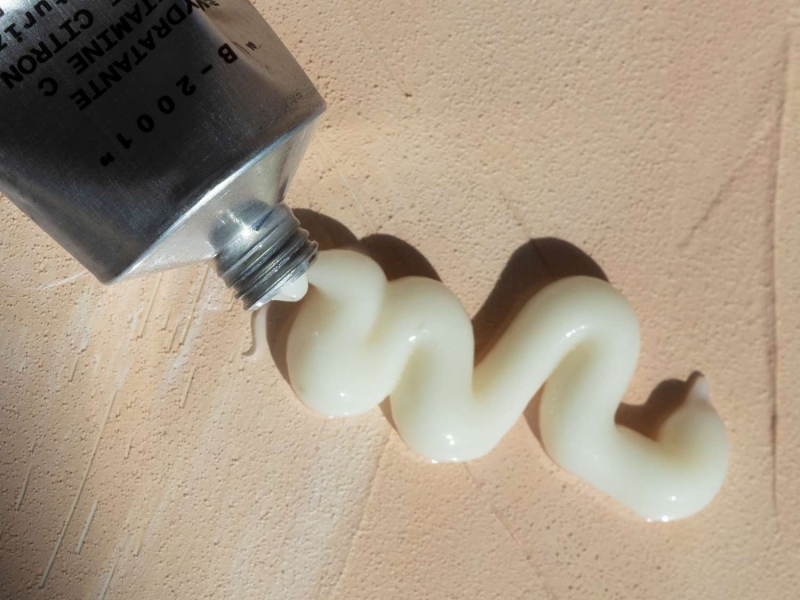
Treatments The Final Takeaway
If you’ve been managing extremely dry and itchy skin, there’s a chance you could have a common condition called eczema. Eczema is an inflammatory skin condition that causes symptoms like dry, itchy, and irritated patches of skin. “Eczema is categorized as a type of dermatitis—a skin condition that causes inflammation of the skin—that can be activated by [several] causes, including exposure to an allergen or irritant, high levels of stress, or dry climates and weather,” says board-certified dermatologist Melanie Palm, MD.
We asked Palm, along with board-certified dermatologists Jeremy Brauer, MD, and Lauren Penzi, MD, to tell us everything there is to know about eczema. Keep reading for what they said.
What Causes Eczema?
The specific cause of eczema isn’t well understood, but it’s likely several different factors, including genetics, environmental triggers, and problems with the immune system or skin barrier. Here’s a bit more information about the factors that may cause eczema or trigger symptoms to flare up:
- Genetics: Eczema often runs in families. A big risk factor for eczema is having relatives who have eczema, asthma, or seasonal allergies, says Brauer.
- Skin barrier defects: Dysfunction within the skin barrier can make it harder for the skin to retain moisture and protect itself from outside elements like irritants, allergens, and microbes that can trigger eczema.
- Environmental factors and allergies: Environmental factors like pollen, pollution, pet dander, or extremely cold or dry weather can all trigger eczema symptoms. “For some people, exposure to these environmental factors can cause an eczema flare,” Palm says.
- Food allergies: Palm tells us that some foods that can trigger eczema are peanuts, tree nuts, gluten, and dairy.
- Irritants: Harsh irritants found in soap, perfume, lotion, and detergent can cause eczema flares. Similarly, wool and other rough or itchy fabrics can also be problematic for some people with eczema.
- Fluctuating hormones: Hormonal changes brought on by menstruation, pregnancy, breastfeeding, or menopause can sometimes trigger eczema flares.
Who Is More Likely to Have Eczema?
Eczema affects people of all ages. Most people develop the condition as children, but it can develop at any age. Some factors, such as allergies and genetics, can make someone more likely to have eczema.
Those with environmental allergies (such as hay fever) and food allergies are more prone to eczema or atopic dermatitis. "It's also more common among children, but usually improves or resolves by the time a child reaches puberty," Palm says.
How Can Eczema Be Treated?
There's no cure for eczema, but you have many options to treat the condition. The specific treatment regimen may differ from person to person, depending on the severity of the symptoms. Preventive measures like moisturizing and avoiding triggers are generally necessary for all people with eczema, adds Penzi.
Here are some common treatments your dermatologist may recommend:
- Antihistamines: These may help relieve itching and discomfort.
- Moisturizer: “Hypoallergenic lotions and moisturizers can moisturize your skin and relieve the dryness that eczema causes,” Brauer says.
- Corticosteroid cream: This may help reduce itching and soothe the skin.
- Avoid triggers: To best manage eczema and prevent it from flaring up, it’s helpful to know what your triggers are. “Generally, I advise my patients to stay away from scented products and fragrances like air fresheners, perfume, dryer sheets, scented detergents, and even scented candles,” Palm says. “If your eczema flare is caused by an allergy to pet dander or pollen, be diligent about vacuuming, washing your bedding in hot water frequently if you have pets, and having an effective air purifier in key areas of your home.”
- Minimize stress: Stress can worsen eczema and contribute to flares, so it can be beneficial to find methods that help you keep it at bay.
- Avoid rough-textured clothing: For some, tight and scratchy clothing can be highly irritating and might contribute to eczema flares. If you know that a specific clothing material (such as wool) causes your eczema to flare, it’s best to avoid it.
- Use a humidifier: If you live in a dry climate, a humidifier can help add moisture to the air, minimizing the chances of an eczema flare.
- Prescription medications: In cases where eczema is moderate to severe, a dermatologist may prescribe medications like Janus kinase (JAK) inhibitors, injectable biologics like dupixent and tralokinumab, or oral steroids to reduce skin inflammation.
- Light therapy: Narrowband UVB phototherapy, a specific type of light therapy, has been shown to help treat eczema, often in addition to topicals.
The Final Takeaway
Eczema is a common condition that causes the skin to become dry, itchy, and irritated. Often, symptoms come and go. "It is caused by a complex interaction of genetics, epidermal barrier dysfunction, immune dysregulation, and environmental factors," Penzi says. "Patients with eczema often have other related disorders, including asthma and seasonal allergies, but this is not always the case."
Eczema can't be cured, but you have many treatment options. If you're concerned you might have eczema, it's best to see a doctor so they can weigh in with an appropriate treatment plan. "A board-certified allergist, immunologist, or dermatologist can help determine whether you have eczema… via an allergy test or a skin biopsy," Palm says.
Article Sources Byrdie takes every opportunity to use high-quality sources, including peer-reviewed studies, to support the facts within our articles. Read our editorial guidelines to learn more about how we keep our content accurate, reliable and trustworthy.
-
Kim BE, Leung DYM. Significance of skin barrier dysfunction in atopic dermatitis. Allergy Asthma Immunol Res. 2018;10(3):207-215.
-
Eczema causes and triggers. National Eczema Association.
-
Clothing and eczema. National Eczema Society.
-
Novel systemic treatments in atopic dermatitis: Are there sex differences? International Journal of Women’s Dermatology. 2021;7(5):606-614.
-
Eczema stats. National Eczema Association.
-
Lee JH, Son SW, Cho SH. A comprehensive review of the treatment of atopic eczema. Allergy Asthma Immunol Res. 2016;8(3):181-190.

